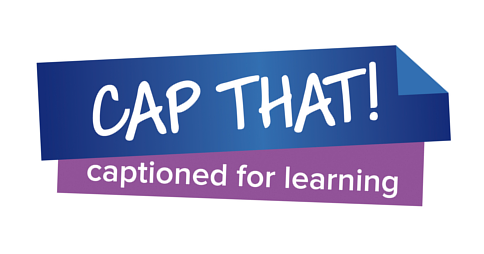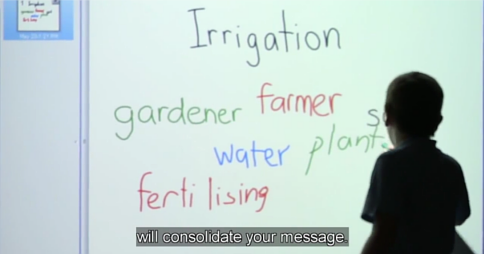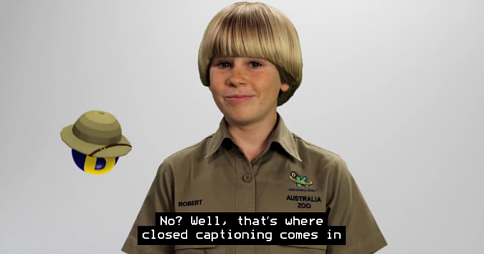Itinerant Teacher of The Deaf
Captions: essential for learning
This downloadable brochure is available for teachers, librarians and teachers of the Deaf to use and share, explaining how captions provide literacy, learning and accessibility benefits for all students. Available information includes:
Top of page
Captioned video and transcripts – ideal access and teaching combination
Five key captioning roles for specialist educators

Five key roles you can play are:
1. Broadening the reach of access services to others
Top of page
Choosing captioned options is an essential first step
Using captions to teach skills and concepts
Considering that captions are really just words used in a particular way to provide access and meaning, it challenges us as educators to ponder how we can use the opportunity these words provide. The written word has been used to teach concepts for thousands of years, so let’s look at words in the context of access. The use of captioned video ‘turns a light on’ to expose the hidden treasure – information – which lies within the video. Further learning for all students can be facilitated by releasing that knowledge in a variety of forms.
Top of page
Captioned Discovery Kids helps primary children learn
Finding your way around our updated education website content
There are three main categories that provide focused points of reference: accessible media for diverse learners, hearing impairment and deafness and low vision and blindness.
Top of page
NSW Premier’s Teacher Scholarships awarded
Our Education Manager, Anne McGrath also works as an Itinerant Teacher of the Deaf with the Catholic Education Office, Sydney. McGrath was awarded the 2014 Premier's IOOF Centre for Educational and Medical Research Itinerant Support Teacher (Hearing) Scholarship by the Premier, Mike Baird, and the NSW Minister for Education, Adrian Piccoli.
Top of page
Teacher information (vision)
It is vital that teachers with students who are blind or have low vision in their classrooms can create an equitable educational environment through the use of accessibility practices.
Top of page




![Finger pointing to the text "English Captions: Yes [Descriptive subtitles for the hearing impaired]" on the back of a DVD box Finger pointing to the text "English Captions: Yes [Descriptive subtitles for the hearing impaired]" on the back of a DVD box](/sites/default/files/images/2015_news_images/July_2015/Finger_pointing_to_CC_on_DVD_box_v2.png)
